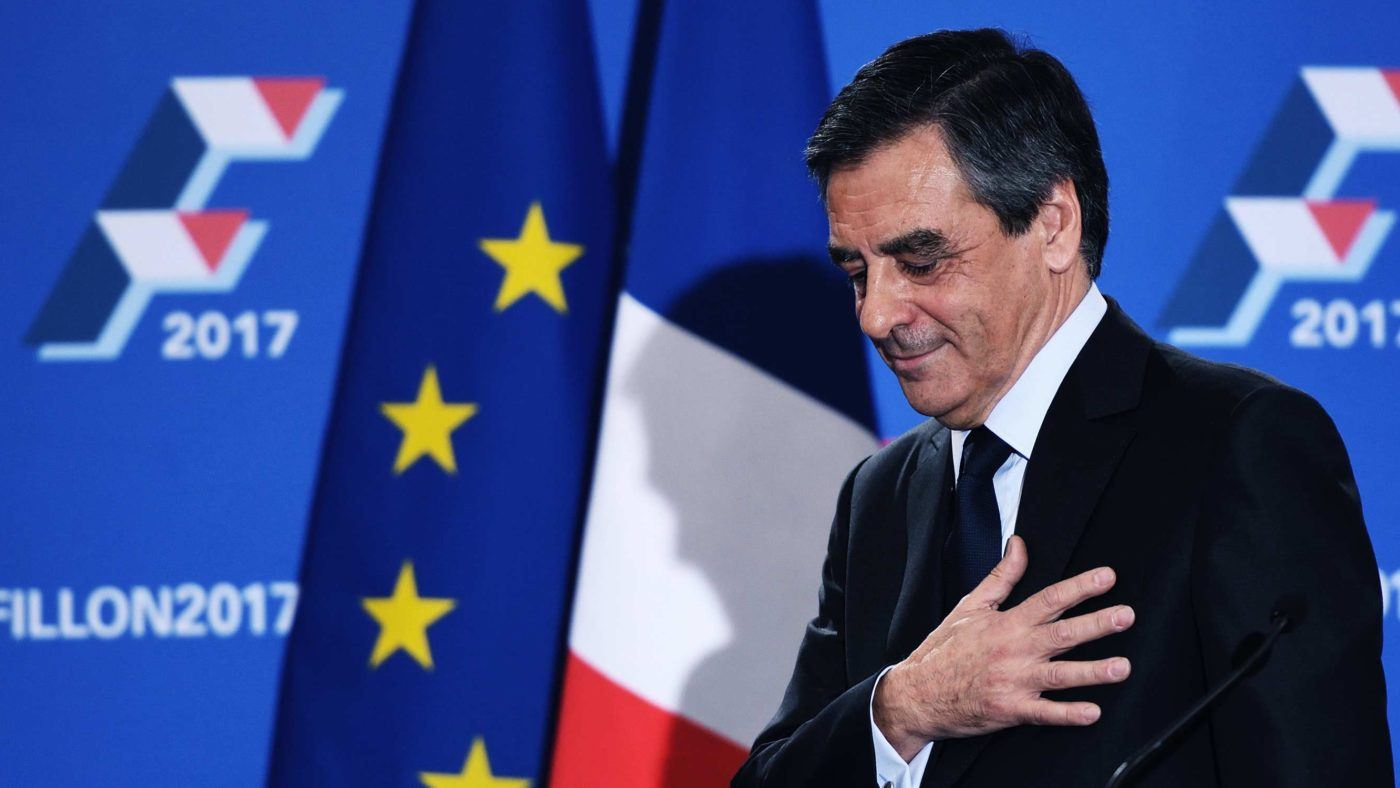France is a country of surprises. It is the country of both Pétain and de Gaulle. Its history, moreover, is not of constant decline but of moral and economic boom and bust.
France has seen several periods of relative decline brought to an unexpected halt by a restart: the so-called “Belle Epoque” (1895 to 1914) when the country was the epicentre of worldwide innovation; the “trente glorieuses” (1945 to 1975) after the comeback of Charles de Gaulle and the implementation of a free-market policy led by the economist Jacques Rueff and the pragmatic minister Antoine Pinay in 1957.
The final results of the Republican primary race in France suggest that another such restart is in the offing.
François Fillon was overwhelmingly chosen in the run-off yesterday as the Right-wing candidate, gaining almost 66 per cent of the vote. He is running on a pledge to introduce a clear conservative program to France, not dissimilar to the ideas of Edmund Burke: he’s an economic liberal and social conservative representing the traditional Right in France.
This political position is hardly new in the UK, the country of Margaret Thatcher and Roger Scruton; but in France this is very exotic.
In fact, Left-wing commentators have denounced Fillon as an Anglo-Saxon, pro-Reagan and pro-Thatcher politician – quite an insult in France.
Against this backdrop, Fillon’s clear victory in the first-round, ahead of long-time favourite Alain Juppé, and the elimination of former President Nicolas Sarkozy, is astounding.
More than 4 million people voted in the first and the second round of the primary, the equivalent of nearly 10 per cent of the electoral body. Again, quite remarkable considering the political process, like the American one, is far from simple in France. There’s a lot of voting still to go – the Socialist party primary, two rounds of the presidential election in April and May, and the two rounds of the general elections in June – before the electorate will finally know what their next government looks like.
That so many people bothered to vote is surely indicative of the desire for political change.
Only 4 per cent of the French people still trust the Left-wing president François Hollande, who may yet announce his candidacy for a second term.
And this is where Fillon has the advantage. He is perceived as the medication that can cure the French illness. France currently looks very similar to the United Kingdom at the end of the 1970s: mass unemployment, over taxation and under investment has left the country with an anaemic economy and lethargic policies.
In his own words, Fillon is the candidate of the “debureaucratisation” and of a “radical change” after 30 years of Right or Left social-democracy.
His economic program aims to reduce public spending from 57 per cent of GDP to 50 per cent of GDP, lighten the tax burden (especially the corporate and capital taxation) and relax job market regulation.
(None of this is a bad idea in a country where the unemployment rate is up to 10 per cent and structural unemployment is between 7 and 8 per cent.)
But Fillon is still a long way away from the Elysée.
Who would bet now that a majority of French electors will be ready to vote for a conservative plan in May 2017? After all, polls show that 42 per cent of those who chose Fillon on Sunday voted for his personality, not for his politics.
It would be very surprising if half of the population had suddenly become so liberal. Indeed, a poll just released by the Economist shows that in a survey of 19 countries, France is the place where people are the least in favour in globalisation.
Other recent polls have showed that a majority of French people are in favour of the “wealth tax”, which Fillon wants to repeal, and against the relaxation of the job market.
The election of François Fillon and the implementation of his program would trigger something of a revolution in France – a revolution similar to what has known England in the 70s or Sweden in the 90s.
But there’s no guarantee he’ll get the vote. People aren’t convinced by his program. He will have a hard job winning over the growing numbers keen to choose the interventionism of the radical Left (embodied by candidates such as Jean-Luc Mélenchon or Arnaud Montebourg) and nationalism of the extremely popular far Right of Marine Le Pen.


